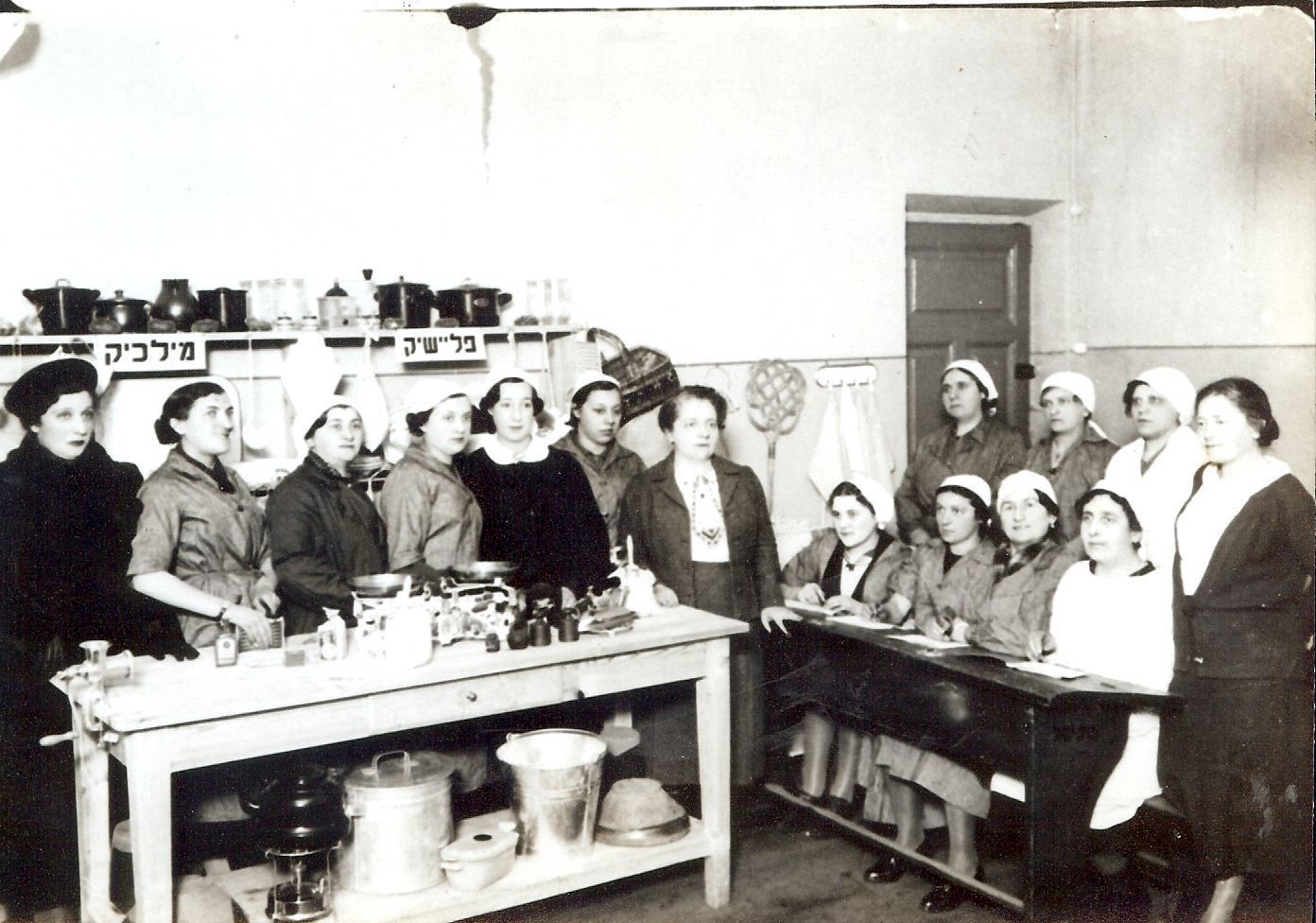In 2015, the world was introduced to The Vilna Vegetarian Cookbook in English. This book survived by a miracle. Published in 1938 in Yiddish by Fania Lewando, a Jew from Vilnius,* it disappeared after the Second World War. By chance, a copy of the book was found in a London antiquarian book fair, purchased, and donated as an item of historic value to the YIVO* in New York. It was translated into English and published, and appeared on National Public Radio’s list of Best Books of 2015, and on the Jewish Book Council’s list of the ten most popular books in 2015.
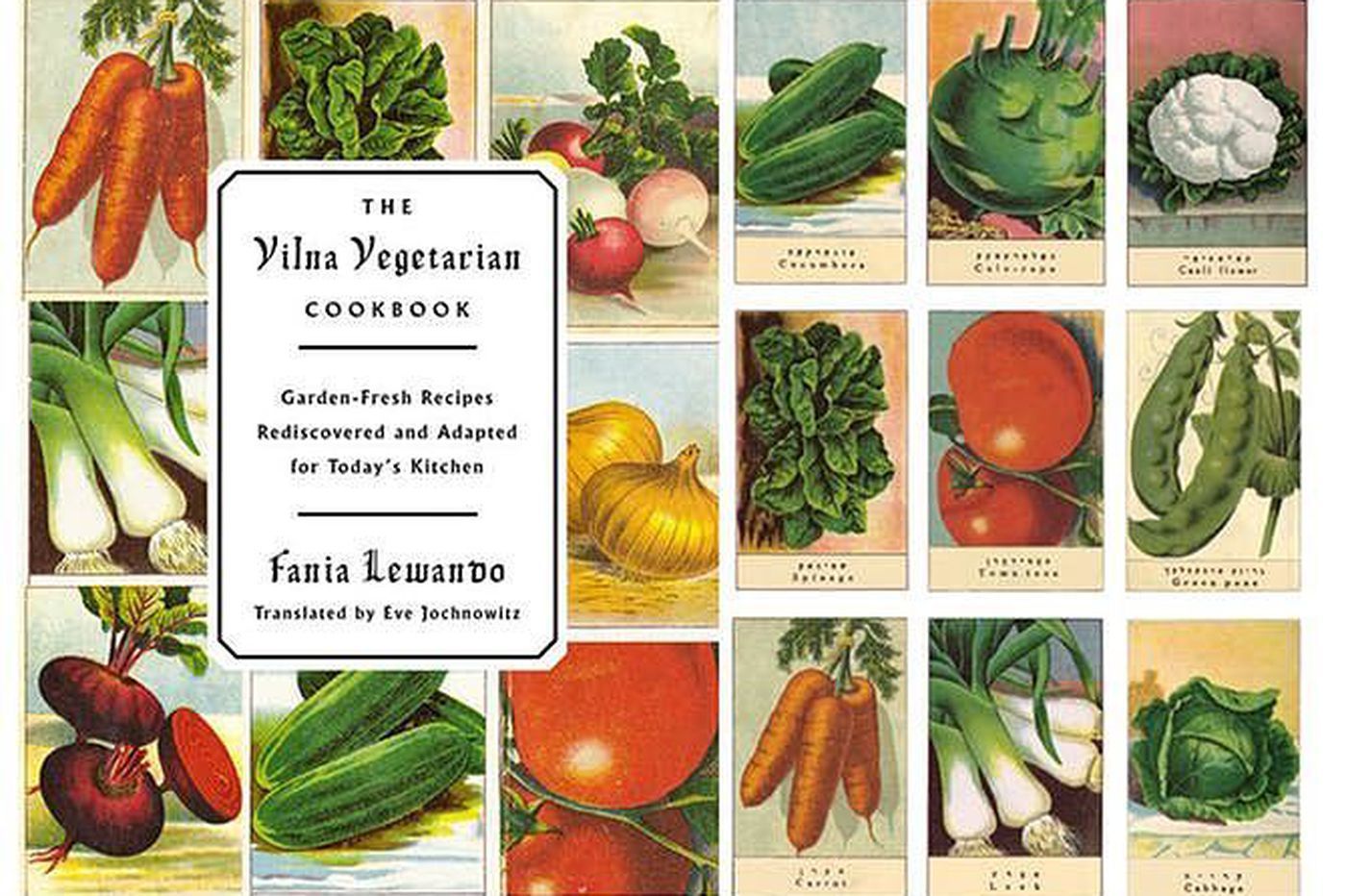
===
Fania Lewando used to say in provincial Vilnius in the 1930s that everyone can be a vegetarian once in a while. Now it surprises nobody, but looking back to interwar Jewish Vilne, it sounds challenging. A good meat dish was not only a necessary part of the daily diet of Jewish families, but also an aspect of Jewish tradition and social status. In these circumstances, where a vegetarian diet would only be eaten in the homes of the poor, or in the absence of kosher meat, Fania Lewando, a brave Jewish woman from Vilne, made vegetarianism a fashion.
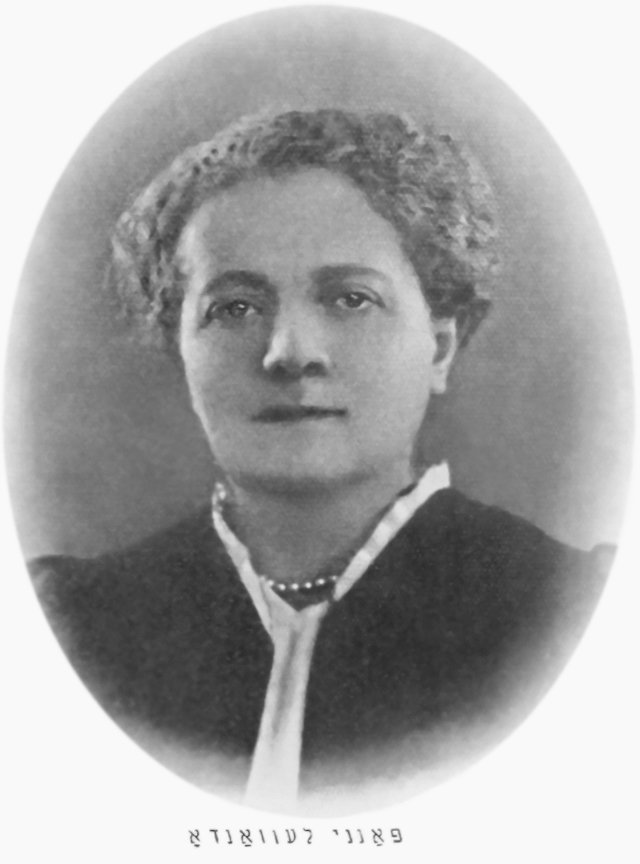
Fania Fiszelewich was born in 1887 in Wloclawek in Poland, and came to Vilna after she married Lazarus Lewando. The historic capital of Lithuania, Vilnius was at that time under the rule of the Russian Empire, and then in 1920 Poland took it over.
In those times, many Jews lived on Vokiečių (German) Street. Until 1861, Jews had been forbidden to live on two main axes of old Vilnius: the first heading from the Gates of Dawn to Cathedral Square, and the second from Trakų Street to Šv. Jonų Street. Vokiečių Street was one of the few main streets where Jews could settle. There were hotels, restaurants and shops run by Jews on this street. Jews published newspapers and sold books here. After their work, coachmen, students, businessmen, journalists and bankers gathered at numerous kloyzes* and batei midrash* for prayers, and they continued their discussions afterwards in the nearest bars and restaurants.
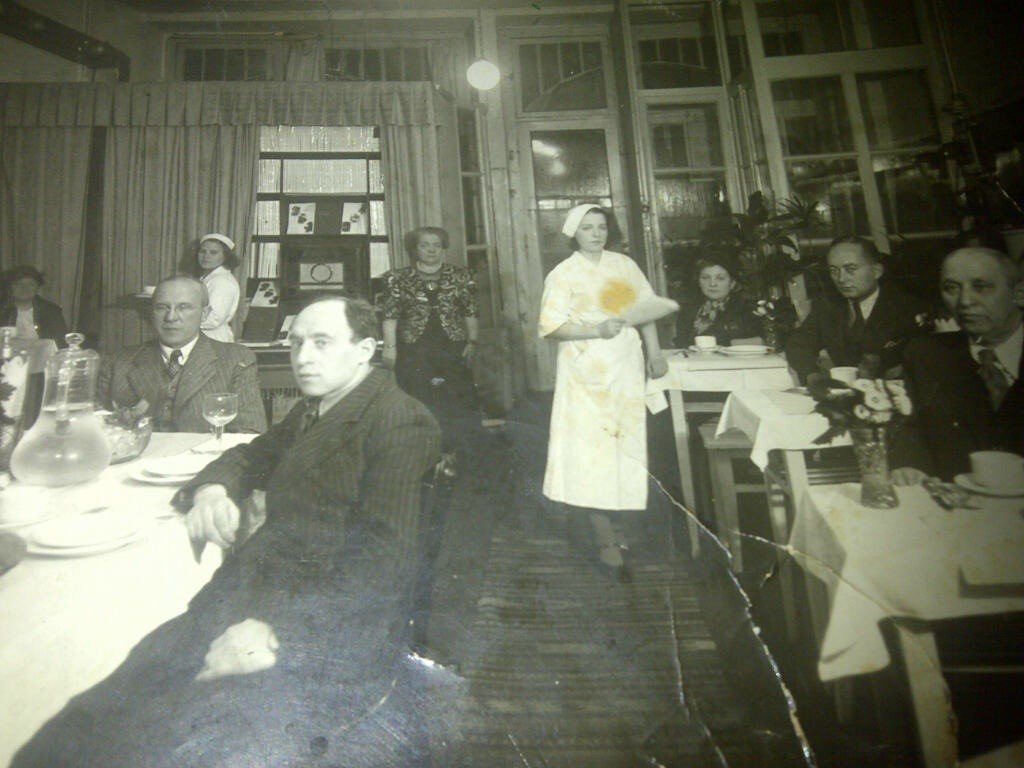 This is how the street appeared in the 1930s, when Fania and her husband Lazarus set up the Vegetarian Diet Canteen (Dieto-Jarska Jadlodajnia in Polish). It was not a cheap canteen for the poor. Fania Lewando was able to convince Vilnius Jews that vegetarian dishes could be healthy, satisfying and delicious, and, of course, luxurious. Not everybody could afford to eat there. It was a matter of prestige, and implied a certain social status, to visit Fania’s restaurant at that time. The famous Jewish artist Mark Chagall and the Yiddish poet Itzik Manger signed the restaurant’s guest book.
This is how the street appeared in the 1930s, when Fania and her husband Lazarus set up the Vegetarian Diet Canteen (Dieto-Jarska Jadlodajnia in Polish). It was not a cheap canteen for the poor. Fania Lewando was able to convince Vilnius Jews that vegetarian dishes could be healthy, satisfying and delicious, and, of course, luxurious. Not everybody could afford to eat there. It was a matter of prestige, and implied a certain social status, to visit Fania’s restaurant at that time. The famous Jewish artist Mark Chagall and the Yiddish poet Itzik Manger signed the restaurant’s guest book.
Fania Lewando also opened a cookery school, teaching vegetarian nutrition. The Vilna Vegetarian Cookbook was published in 1938. Fania included as many as 400 Jewish vegetarian recipes, varying from everyday foods to festive dishes. She used most of these recipes in her restaurant.
Fania and Lazarus Lewando disappeared during the Holocaust, as did most of the Jewish community in Vilnius. It is believed that she died in 1941, when she tried to escape from the Nazi-occupied city.
===
We can retrace the story of Fania Fiszelewicz Lewando and her husband Lazarus Lewando by visiting Vokiečių Street. On the pavement next to number 14 Vokiečių Street we can see a small artistic Stolpersteine (memorial stone) installed by the German artist Gunter Demnig. The restaurant operated at this address before the Second World War. Unfortunately, the original building is gone. It was situated on the other side of Vokiečių Street, on the crossroads with Žydų (Jewish) Street.
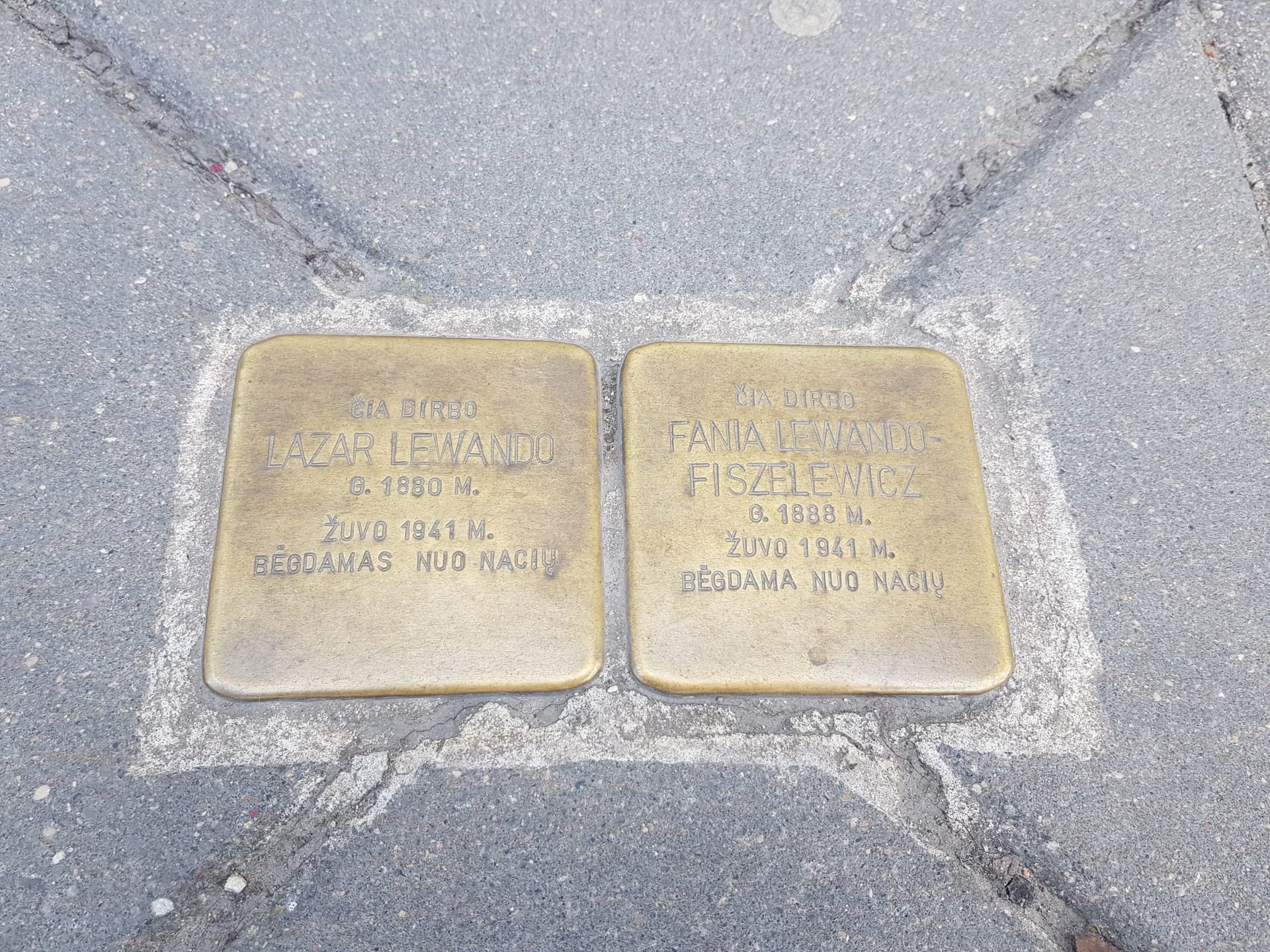 * Vilna, Vilne, Wilno. Vilnius, the capital of Lithuania, has always been a multicultural town, and each community used to call it by a different name. It is Vilnius in Lithuanian, Vilne in Yiddish, Vilna in Russian, and Wilno in Polish. Officially, it is called Vilnius, but sometimes, when we refer to its multicultural, particularly Jewish, or historic context, we give it other names.
* Vilna, Vilne, Wilno. Vilnius, the capital of Lithuania, has always been a multicultural town, and each community used to call it by a different name. It is Vilnius in Lithuanian, Vilne in Yiddish, Vilna in Russian, and Wilno in Polish. Officially, it is called Vilnius, but sometimes, when we refer to its multicultural, particularly Jewish, or historic context, we give it other names.
* The Yiddish Language and Culture Institute (Institute for Jewish Research, or YIVO), was founded in Vilnius in 1925, and moved to New York before the Second World War. It still operates in Manhattan.
* Yiddish and Hebrew names for Jewish prayer and study houses.
===
You can find out more about Fania Lewando and Jewish Vilnius at Litvak Shtetls
Author: Aušra Mikulskienė
Project partner: Vilnius City Municipality
